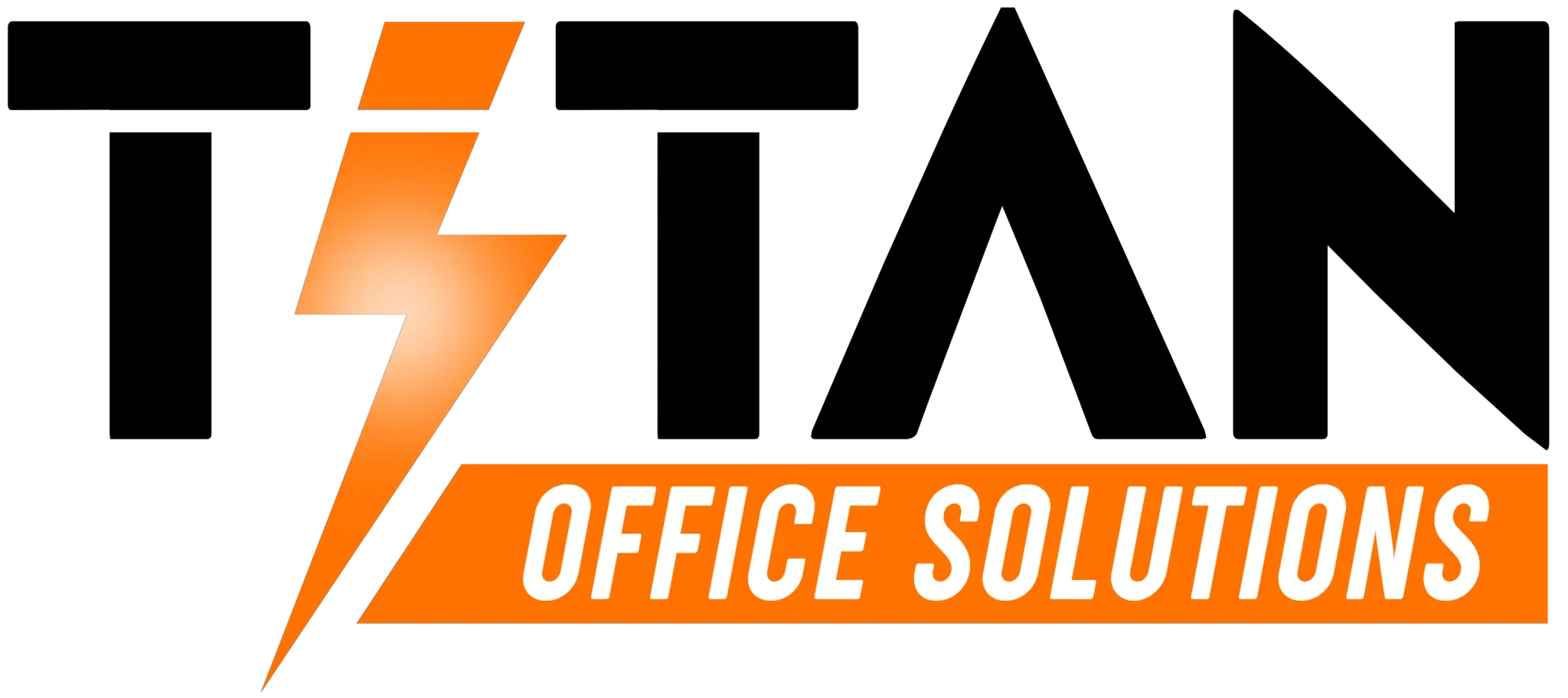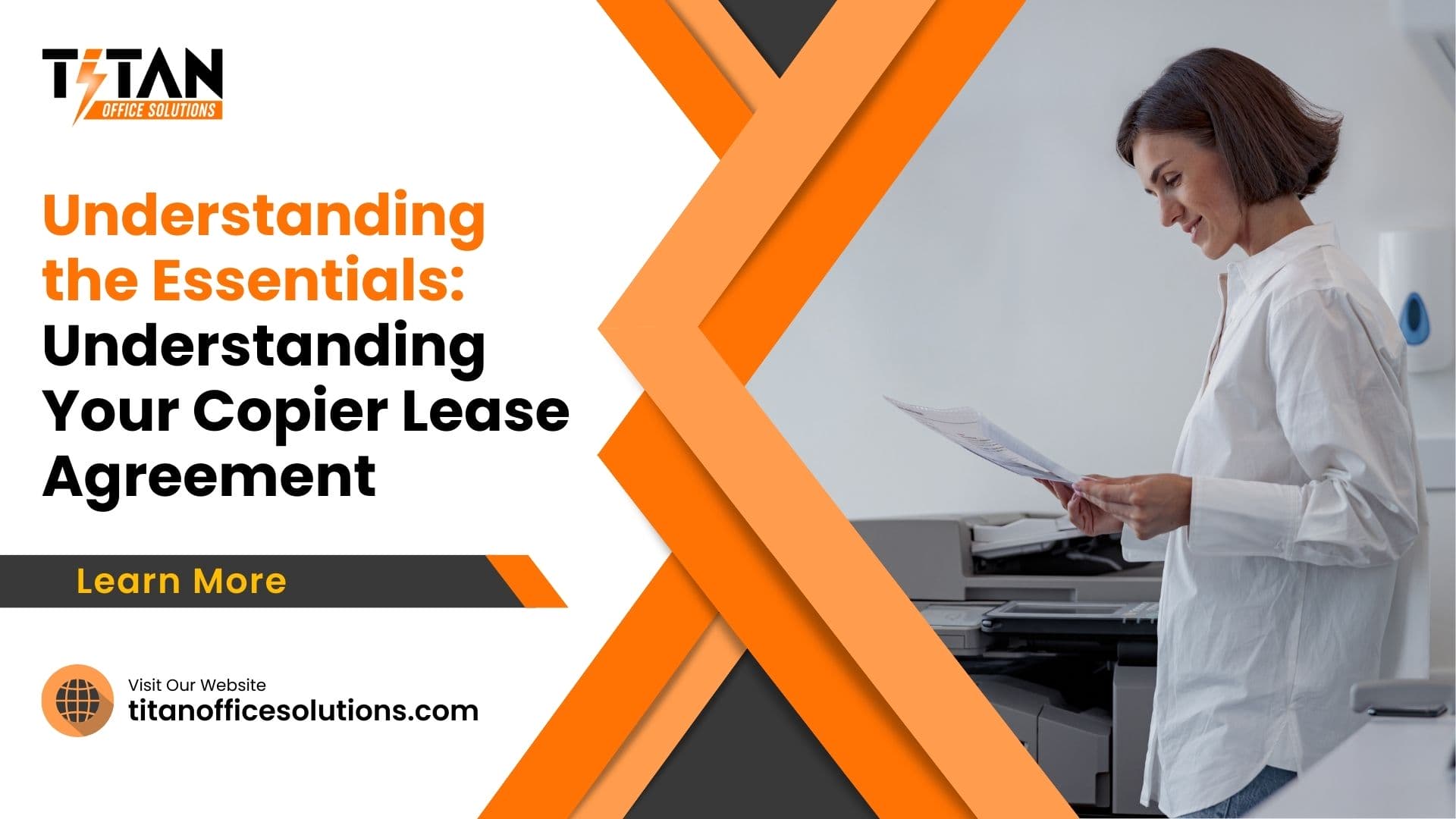When you consider adding a new copier to your office, deciding whether to buy or lease a copier can be daunting. A copier lease agreement offers flexibility and potential savings, but it comes with its intricacies. Understanding your lease agreement is crucial because it outlines your commitments, the services you’ll receive, and the options available at the end of the lease.
This article dives into the types of copier lease agreements, key considerations before signing one, and how to navigate these waters wisely.
Types of Copier Lease Agreements
Operating Lease vs. Capital Lease
There are two primary types of lease: operating and capital. An operating lease is akin to renting. It’s for businesses that foresee upgrading their office equipment frequently. The copier remains the property of the lease company, and at the end of your lease, you return it. This option means lower monthly payments and keeps the lease off your balance sheet, offering tax benefits.

In contrast, a capital lease is more like a purchase plan. Here, the copier becomes your asset, affecting your balance sheet. A capital lease usually has a buyout option at the end of the lease, often for a nominal amount. This type of lease suits businesses planning to keep the copier long-term.
Fair Market Value Leases
Fair market value (FMV) leases give you the option to buy the copier at its fair market value at the end of the lease. The FMV option provides flexibility if you’re unsure about committing to a new copier long-term. It generally offers lower monthly payments compared to capital leases.
$1 Buyout Leases
A $1 buyout lease is exactly what it sounds like. At the end of the lease, you can purchase the copier for just one dollar. While this sounds appealing, remember that your monthly payment will be higher since you’re essentially paying off the purchase price of the copier over the lease term.
Key Considerations Before Leasing a Copier
Determining Your Budget
Your budget plays a pivotal role in deciding to lease a copier. Not only do you need to consider the monthly lease payment, but also the total cost over the lease term, including maintenance agreements and potential excess usage fees. A well-planned budget ensures you can comfortably afford your copier lease without straining your finances.
Assessing Term Length
The lease term you choose can significantly impact your monthly payment and overall satisfaction. A longer lease term usually means lower monthly payments, but it also means committing to a copier for a longer period.
Consider how long you’re comfortable being tied to your current lease and whether your business needs may change in that time. It’s essential to negotiate a lease term that aligns with your business goals and equipment needs.
Evaluating Copier Capabilities and Technical Specifications
Before signing a lease agreement, assess the copier’s capabilities and whether they meet your business’s needs. Consider print speed, volume, and quality. Also, evaluate technical specifications like connectivity options and security features. Remember, the goal is to lease a copier that enhances your office’s efficiency without overpaying for unnecessary features.
Carefully considering these aspects before entering a copier lease agreement can save you time, money, and headaches. Whether you’re after the latest technology or just need a reliable machine for daily tasks, there’s a lease option out there for you. Remember to negotiate terms that favor your business and keep an eye on the future, ensuring the copier you choose today still fits your needs tomorrow.
Understanding Lease Terms and Conditions
Monthly Payments and Total Cost
Understanding the monthly payments and total cost involved in a copier lease is vital. Your monthly payment is not just a random figure. It reflects the cost of the copier, interest rates, and any other fees your leasing company may include.

Therefore, it’s not just about the sticker price of the machine. The total cost over the lease term also includes service fees, maintenance, and potential overage charges. Above all, ensure you are clear on what your payments cover and any additional costs that may arise during the lease.
Service and Maintenance Agreements
Service and maintenance are the linchpins of a successful copier lease. A solid maintenance agreement ensures your copier stays in tip-top shape, preventing downtime due to repairs or maintenance issues. Most lease agreements include a service component, but the extent of coverage can vary widely.
For instance, some contracts cover parts and labor but not consumables like toner. Similarly, others might offer comprehensive maintenance, including regular check-ups and even upgrades. Therefore, it’s essential to understand the specifics of your service agreement.
End-of-Lease Options and Auto-Renewals
As you approach the end of your lease, you’ll be faced with several options. You might have the chance to buy the copier, return it, or upgrade to a new model. However, be wary of auto-renewals. Some leases automatically renew for a set period unless you notify the leasing company in writing that you intend to return the machine or opt for a different end-of-lease option. It’s crucial to look through your lease agreement well before the end date to avoid unwanted renewals. This proactive approach allows you to decide the best course of action without pressure.
Negotiating Your Copier Lease Agreement
Importance of Negotiating Terms
Negotiating the terms of your copier lease agreement can save you money and hassle down the line. It’s not just about getting a lower monthly rate; it’s also about securing favorable terms that match your business’s needs. For instance, ensuring that service and maintenance terms are clearly defined and favorable can prevent unexpected costs and downtime.
Tips for Negotiating Service Contracts
When it comes to service contracts, don’t accept the first offer. Feel free to reach out to multiple copier leasing companies to compare maintenance costs, response times, and service level agreements. This comparison not only gives you leverage in negotiations but also provides a clearer picture of what constitutes a fair deal. In addition, ensure that the service contract is separate from your lease whenever possible. This separation gives you flexibility to switch service providers if you’re dissatisfied with their performance without affecting your lease terms.
Strategies for Negotiating Exit Clauses and Upgrades
Exit clauses and upgrade options are crucial elements of your lease agreement. Negotiating a favorable exit clause can save you significant money if you decide to end the lease early or switch to a different machine. Ask for a clear explanation of any penalties or fees associated with early termination and try to negotiate these down.
Similarly, securing an upgrade option can ensure that your business always has access to the latest technology without waiting for the lease term to expire. This flexibility is particularly valuable in rapidly evolving industries where staying current can provide a competitive edge.
Negotiating a copier lease might seem daunting, but understanding and leveraging the terms can significantly benefit your business. By paying close attention to the monthly payments, service agreements, and end-of-lease options, and by approaching negotiations with a clear strategy, you can secure a lease that supports your business’s operational needs and budgetary constraints. Remember, the goal is to ensure that your copier lease serves as an asset to your business, not a liability.
Common Misconceptions About Copier Leasing
Debunking Myths about Costs, Flexibility, and Suitability
There are several myths surrounding copier leasing. First, many believe leasing is more costly than buying outright. However, leasing can offer lower monthly payments and free up capital for other business needs. Leases often include maintenance, spreading the cost over time and avoiding large one-time expenses for repairs or replacements.

Flexibility is another area of confusion. Some think a lease locks you into a rigid agreement with no room for change. In reality, many leasing companies offer flexible terms, including upgrade options and scalable plans to adjust as your business needs change.
Lastly, the suitability of leasing for small businesses is often questioned. It’s a common misconception that only large companies can benefit from leasing. Small businesses can also take advantage of the latest technology, maintenance services, and predictable budgeting that comes with leasing.
What People Also Ask
What should I know about auto-renewals in copier lease agreements?
Auto-renewals mean your lease could continue beyond the initial term unless you opt out within a specified period. It’s essential to mark the end date and notification period on your calendar to avoid unwanted extensions.
Can service and maintenance agreements be negotiated separately from the lease?
Yes, service and maintenance terms can often be negotiated separately. This arrangement can provide more flexibility and potentially lower costs, as you’re free to choose your service provider and negotiate the terms directly.
What are the benefits of a managed print solution in a lease agreement?
A managed print solution simplifies your printing operations by bundling hardware, supplies, maintenance, and support into one service. Benefits include cost savings, improved efficiency, predictable expenses, and reduced administrative burden.
Conclusion
In summary, leasing a copier can be a smart choice for many businesses, offering financial flexibility, access to the latest technology, and convenience through maintenance agreements. By understanding the terms and conditions of your lease agreement, negotiating wisely, and debunking common myths, you can ensure that your copier lease aligns with your business’s needs and goals. Remember, knowledge is power, especially when entering into a legally binding agreement.
Titan Office Solutions
Phone: (704) 741-0821
Email: info@titanofficesolutions.com
Hours of Operations: Monday through Friday from 8:30 AM to 6 PM EST.
Website: titanofficesolutions.com

